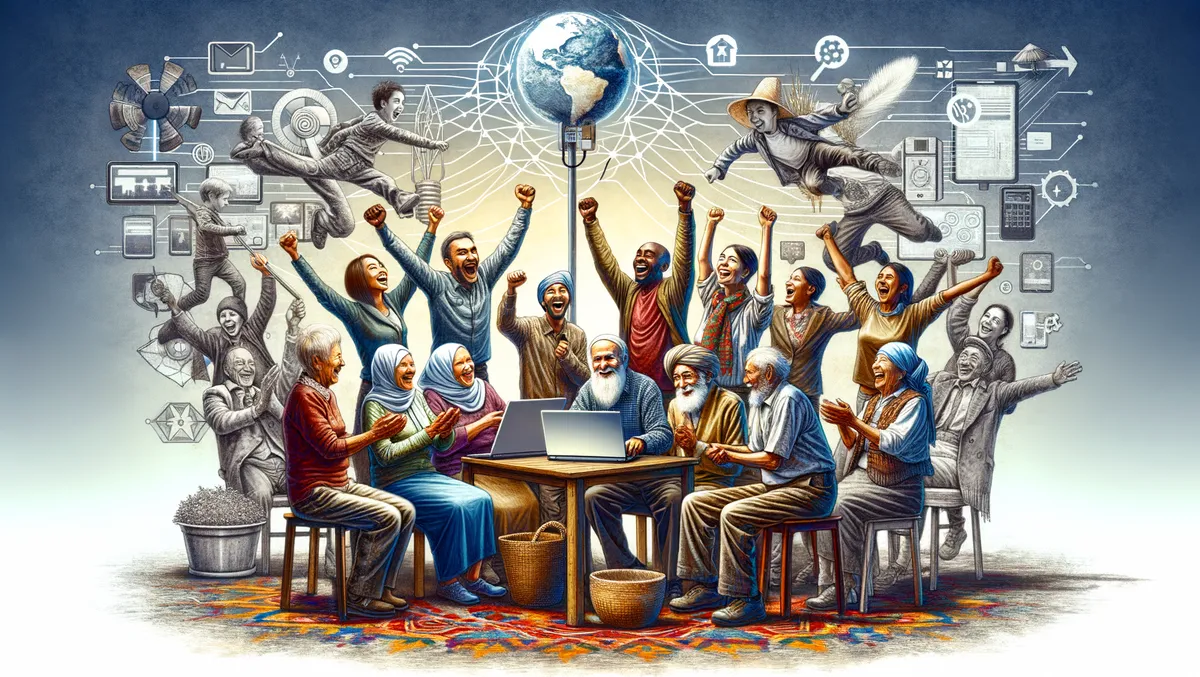
Huawei connects 90 million people under ITU initiative
Huawei has announced the successful connection of 90 million individuals in distant parts of 80 countries, placing the tech giant ahead of its target, having achieved over 75% of the set goal to connect 120 million people by 2025. This commitment forms part of a wider endeavour under the ITU Partner2Connect (P2C) Digital Coalition initiative.
According to data from the ITU, there are currently 2.6 billion unconnected persons worldwide, a decrease of 100 million from the previous year. Huawei's advanced information and communication technologies (ICT) have played a significant role in this reduction, bringing 30 million people online within the past year. In total, Huawei's ICT solutions have established internet connectivity for 90 million people residing in remote areas in almost 80 countries, with 34 of them on the UN's list of the world's 46 least developed countries.
The company's ICT solutions, including RuralStar and RuralLink, have been instrumental in providing voice and data services to meet the interests of the unconnected population while improving cost efficiency for rural network deployments. Such digital infrastructure is becoming as integral to socio-economic development as physical ones, said Huawei's Chairman of the Board, Liang Hua.
"Next-generation digital infrastructure, like connectivity and computing power, are as vital to driving socio-economic development as our physical infrastructure, just like roads. This new infrastructure will be crucial to sustainable development for all of society," Dr. Liang commented. "Computing is a core driver of productivity in the digital economy. Faster rollout of computing infrastructure will help speed up digital transition in many industries, and promote deeper integration of the digital and real economies."
Further testament to the importance of these advancements is the perspective of Doreen Bogdan-Martin, the Secretary-General of ITU, who added, "Let's not choose between tech and sustainable development. We need both! Let's thrive together with tech. Let's build a digital future that advances progress for people and planet."
During Huawei's third Sustainability Forum, live connections to four varying rural initiatives were shown, demonstrating how these exemplary digital solutions are simultaneously driving business value and protecting the environment, contributing globally to sustainable development.
One such project in Ghana, a collaboration with the government, has brought voice and data services to 3.5 million people across 172 rural locales, expanding coverage from 83% to 95% of the country. Another in Tengchong City, south-western China, has driven the growth of new business models and increased the economy with a 5.6% YoY rise in GDP, following the implementation of an improved digital infrastructure.
To engender innovative community-impact projects among young visionaries, Huawei and the ITU jointly launched a fellowship titled "ITU Generation Connect x Huawei Young Leaders". The initiative will offer funding for 30 young individuals annually over the next three years. According to Jeff Wang, President of Huawei's Public Affairs and Communications Department, the fellowship is nothing short of crucial. It will "empower young people in vulnerable situations to develop innovative projects for a more inclusive and empowered digital future for everyone."


